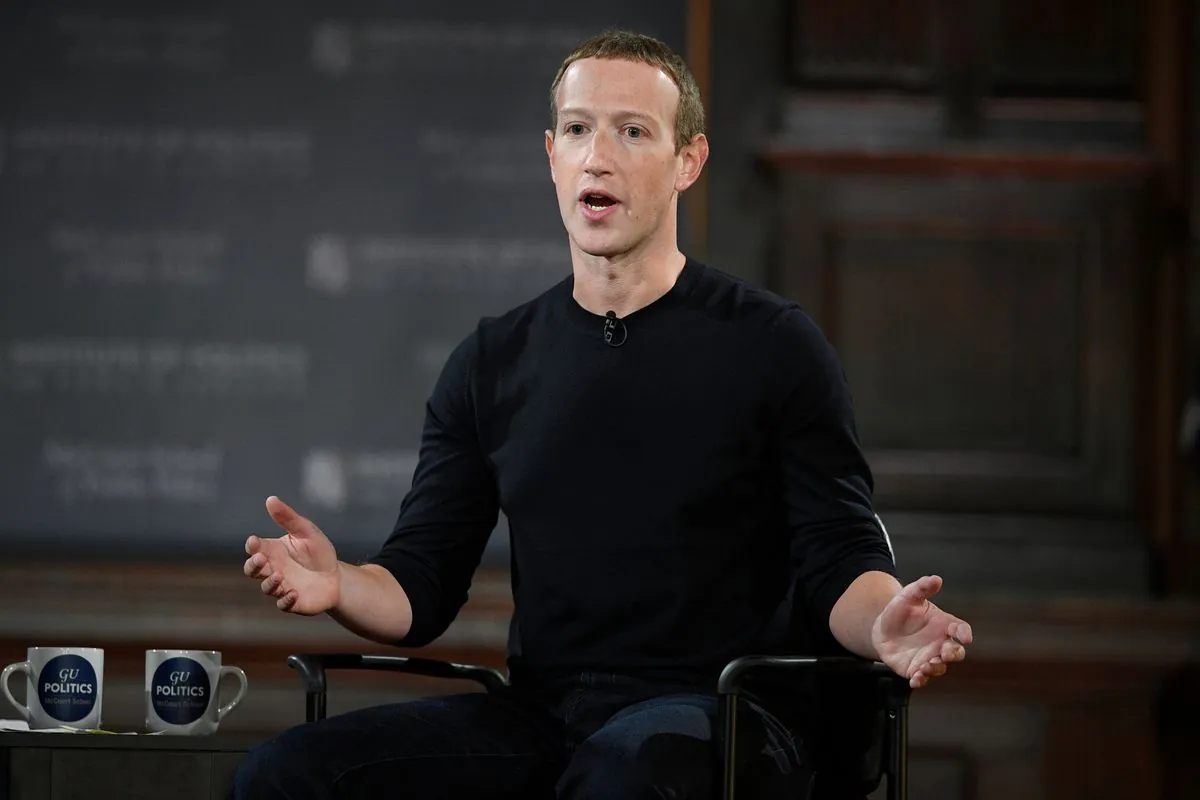Zuckerberg Criticizes Biden Admin, Revises Meta's Content Policies
Meta CEO Mark Zuckerberg addresses content moderation pressures from the Biden administration in a letter to Rep. Jim Jordan. The company announces policy changes ahead of the 2024 election.

Mark Zuckerberg, CEO of Meta, has addressed concerns about content moderation and government pressure in a letter to House Judiciary Committee Chair Rep. Jim Jordan. The communication reveals significant changes in Meta's approach to handling potentially false information on its platforms.
In the letter, Zuckerberg stated that in 2021, the Biden administration exerted pressure on Meta to remove certain COVID-19 related content, including humor and satire. He emphasized that while the administration expressed frustration with Meta's decisions, the final choice to remove content remained with the company.
Meta, which owns Facebook, Instagram, WhatsApp, and Threads, has announced a shift in its content moderation policies. The company will no longer "demote" posts flagged as potentially false while awaiting fact-checking results. This change could impact the spread of information during the upcoming 2024 U.S. presidential election.

Zuckerberg also addressed the temporary suppression of a 2020 New York Post story about Hunter Biden's laptop, acknowledging it as an error. He stated that Meta has revised its policies to prevent similar incidents in the future.
The letter appears to be an attempt to improve relations with conservative lawmakers ahead of the 2024 election. It comes amidst ongoing Republican-led investigations into social media content moderation practices.
"I feel strongly that we should not compromise our content standards due to pressure from any Administration in either direction — and we're ready to push back if something like this happens again."
Zuckerberg's criticism of the Biden administration and pledge to adjust content moderation practices have been welcomed by some conservative voices. However, experts have expressed mixed reactions to the letter.
Katie Harbath, CEO of tech consultancy Anchor Change and former Facebook official, noted the complexity of the situation. She acknowledged the need for Meta to address Republican concerns but questioned the lack of similar outreach to Democrats.
David Kaye, a professor at UC Irvine School of Law, offered a more critical perspective, describing the letter as "cynical" and "obsequious." He suggested that Zuckerberg's message might reinforce perceptions that Meta's policies can be influenced by government pressure.
In addition to content moderation issues, Zuckerberg confirmed that he will no longer donate to local U.S. election infrastructure through the Chan Zuckerberg Initiative. This decision could potentially impact funding for elections in smaller jurisdictions.
As Meta navigates these complex issues, it continues to face scrutiny over its role in shaping public discourse and its impact on democratic processes. The company's decisions in the coming months will likely have significant implications for the 2024 election and beyond.


































